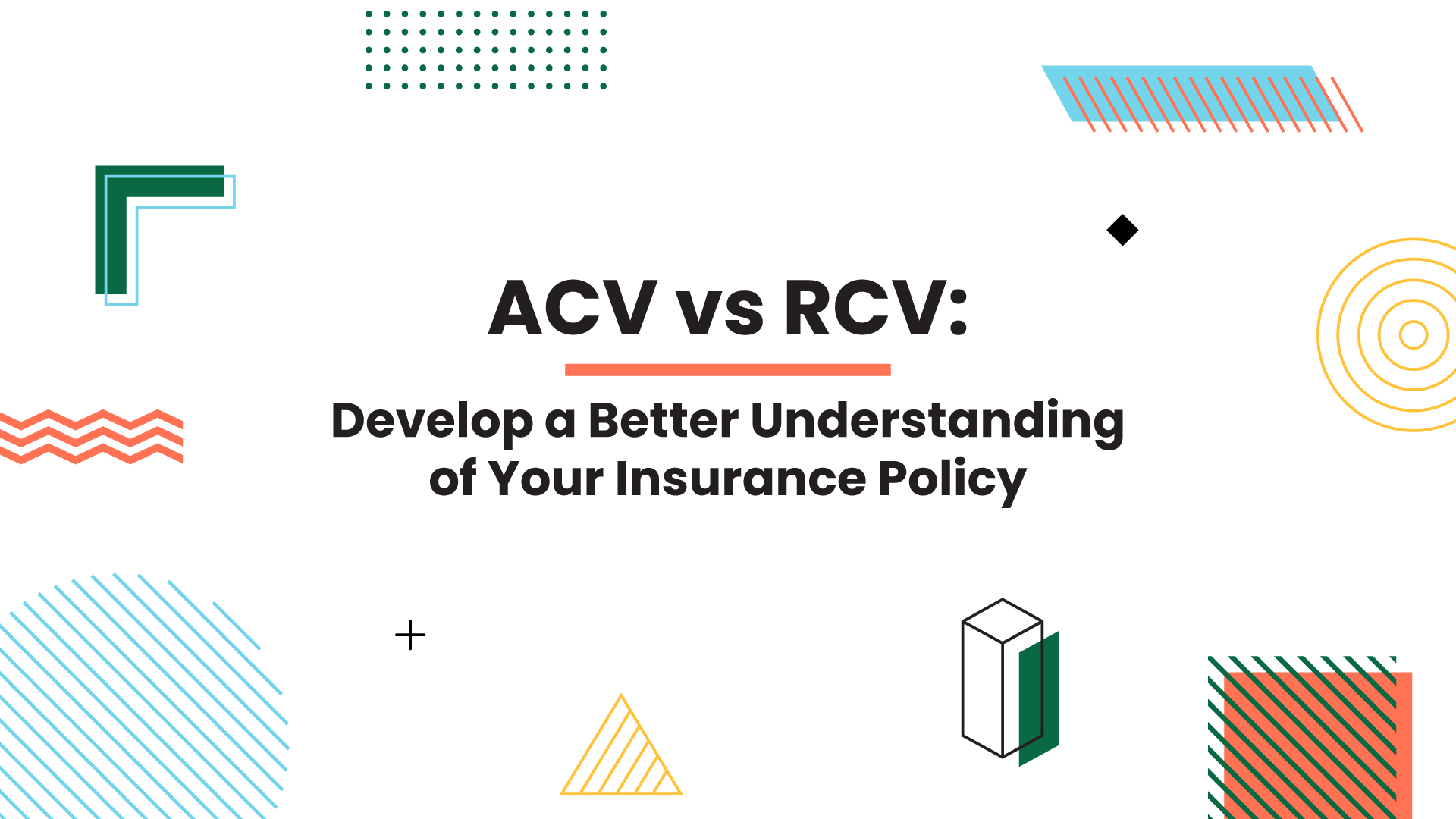Actual Cash Value vs. Replacement Cost Value: Develop a Better Understanding of Your Insurance Policy
3 Feb 2022 • 3 min read

Purchasing a renters insurance plan can be overwhelming. You’ve got to find the best coverage at an affordable price, but there are So. Many. Details. to consider before purchasing.
Insurance is crucial in all your financial decisions, so it’s essential to evaluate insurance policies properly. Hopefully, you never need to file an insurance claim, but in case you need to, it helps if you have a good understanding of your plan.
One of the most important — and often overlooked — things is knowing if your insurance company covers replacement cost value (RCV) and actual cash value (ACV). The difference between ACV and RCV can significantly impact your insurance cost and claims.
Keep reading to learn more about the difference between RCV vs. ACV insurance and how to make an informed decision.
- ACV vs. RCV
- Actual Cash Value (ACV)
- Replacement Cost Value (RCV)
- What To Look For in Your Insurance Policy
- Final Thoughts: ACV vs. RCV in Insurance and Why It Matters
ACV vs. RCV
Actual cash value (ACV) is the reduced cost of a product as determined after considering depreciation – the price you’d get if you tried to sell it in its current condition today. Replacement cost value (RCV) is the actual total retail price of the item without any depreciation, no matter how much time has passed.
A good insurance plan offers replacement cost coverage, keeping an eye on your long-term benefits. And not to brag, but Goodcover provides RCV coverage as a standard for all renters insurance policies.
Actual Cash Value (ACV)
So, what is ACV on insurance estimates?
If your insurance carrier covers the actual cash value (ACV), it means that you won’t get all the money you lost on damaged items. Instead, they’ll only reimburse you for the damaged or lost item’s current value after depreciation.
Whether it’s a laptop or a TV, it will lose its value with time. That results in a loss of the reimbursed amount.
Let’s say that you bought a laptop for $1,000 and you’ve had it for four years. You have an insurance plan, but it only covers ACV on property damage.
You lose your laptop because of a fire that broke out in your apartment. You file the insurance claim. The reimbursed amount isn’t $1,000 but way less — maybe somewhere around $500.
Replacement Cost Value (RCV)
What about RCV on an insurance plan?
With an RCV policy, your insurance reimburses you for the total retail price, whether an item gets lost or damaged. Replacement cost insurance enables you to repair or replace an item without an additional financial burden.
Think again of your laptop, worth $1,000, ruined because of a fire. You file a claim and get reimbursed the full retail price of $1,000. That will cover the cost of replacement and help you purchase a new laptop.
With RCV, the only cost you have to deal with is your insurance plan’s deductible amount.
What To Look For in Your Insurance Policy
With ACV vs. RCV, you may be drawn to a type of policy with actual cash value coverage, primarily because of lower monthly payments. However, that decision can later result in a financial burden when covering losses.
You can also lower or raise your replacement cost coverage.
If you lower your replacement cost coverage, your monthly payments will go down. Some insurance providers cover up to a certain percentage of the replacement cost. For example, you can choose a plan that covers 80% of the replacement cost, so you will be reimbursed 80% of the value in case of damage or theft.
If you already have a renters insurance policy, look at the section titled “Personal Property Coverage” (or similar). That’s where most policies explain whether they cover ACV or RCV.
If you’re having trouble figuring out your policy, contact Goodcover and we’ll help you find the correct information.
Final Thoughts: ACV vs. RCV in Insurance and Why It Matters
When choosing an insurance provider, replacement cost coverage vs. actual cash value is critical. The type of coverage you get can significantly impact your financial management in the future.
It isn’t easy to find an affordable plan where one can still enjoy the benefits of RCV coverage. This is where Goodcover’s low rates and quality give you the best of both worlds.
Protect your personal property with RCV coverage and start saving on your renters insurance payments too. Get a quote today.
Note: This post is meant for informational purposes, insurance regulation and coverage specifics vary by location and person. Check your policy for exact coverage information.
For additional questions, reach out to us – we’re happy to help.
More stories
Team Goodcover • 19 Aug 2024 • 10 min read
Colorado Rent Increase Laws: A Comprehensive Guide for Renters
Team Goodcover • 1 Aug 2024 • 4 min read
Liability Coverage Explained: What Every Renter Needs to Know
Team Goodcover • 26 Jul 2024 • 6 min read
Colorado Renters Insurance: What You Need to Know
Team Goodcover • 6 Jul 2024 • 6 min read
6 Renters Insurance Mistakes (and How to Protect Yourself)
Team Goodcover • 26 Jun 2024 • 8 min read




